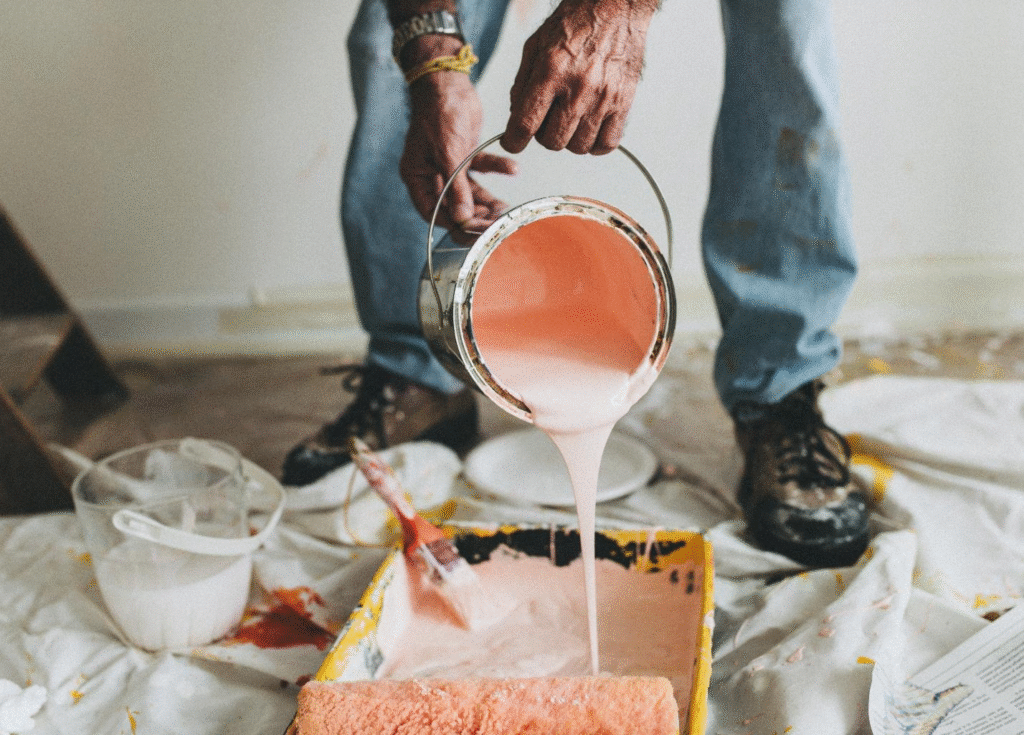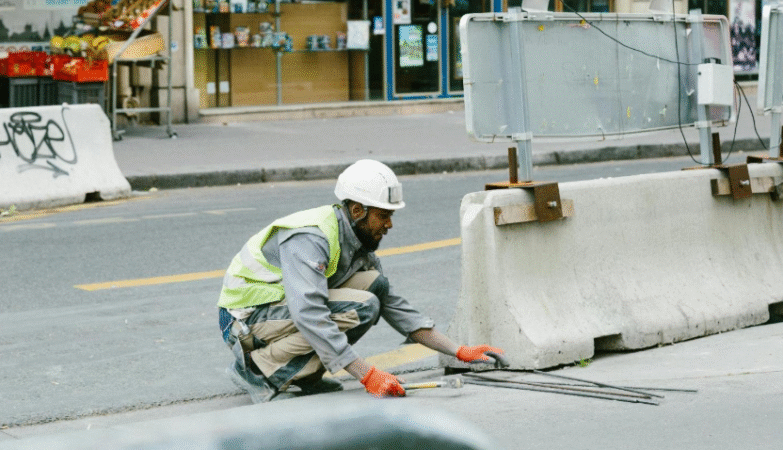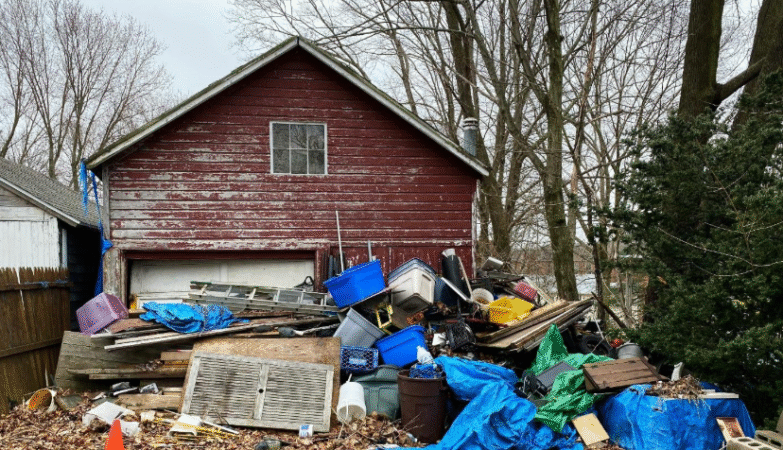We may receive commission from purchases made via links on this page. Pricing and availability are subject to change. This content is created by a 3rd party partner for Yahoo.
If you’ve ever searched “Why can’t I keep my plants alive?”, keep reading. Some people hate to admit it, but plenty of them have managed to kill almost every house plant they’ve ever owned, including cactuses. If you’ve ever dabbled in vegetable gardening, you’ve probably figured out that, just like humans, plants need certain nutrients to grow, thrive, and prevent disease.
If your plants are looking a little sad, despite getting enough sunlight and water, they’re probably hungry for some quality nutrients. Whether your greenery lives indoors or outdoors, seeing it bloom to its full potential will occasionally require using fertilizer. If you’re not quite sure where to start, you’re in luck. We’ve done a fair amount of research and have gained some insight into the basics of fertilizing. After checking out some of the top garden fertilizers for 2022, we’ll get into the finer details to help you find something that works for you.
Top Picks
Best overall: Miracle-Gro Garden Fertilizer
Miracle-Gro Garden Fertilizer provides a high-nutrient content and multi-purpose use. Whether you are tending a flower bed or vegetable garden, you can start seeing results within one to two weeks. This option is also water-soluble, meaning that nutrients are immediately made available for absorption. When used according to the package instructions, you can expect healthier-looking flowers and a more bountiful harvest. This product can also be easily dispensed using a watering can or spray device. We chose this garden fertilizer as the best overall option on this list because of the quality nutrients it provides plants as well as the results it can deliver to customers.
Key Features:
-
Fertilizer analysis: 24-8-16
-
Ideal for flowers, house plants, potted herbs, vegetables, trees, and shrubs
-
Fast-absorbing plant food for quick results
Perfect for vegetable gardens: Dr. Earth Garden Fertilizer
If you’re aiming to keep your veggie patch as organic as possible, Dr. Earth’s fertilizer can help you reach your goal. It is made using only natural and organic ingredients enhanced with components that aid drought tolerance and healthy growth. This option can be used during the initial seed-planting stage, both when transplanting and as a top dressing. You can also let it soak in water for 24 hours, strain it and then use the solid part as mulch while applying the fertilizer tea as liquid food for your plants. The packaging also gives clear directions on various ways to use this fertilizer according to what you are growing.
Key Features:
-
Fertilizer analysis: 4-6-3
-
Ideal for tomatoes, herbs, and vegetables
-
Contains beneficial soil microbes for faster nutrient availability
Best organic: Jobes Garden Fertilizer
This organic, granular fertilizer can be used in soil preparation before planting, as well as for container gardening and to nourish established vegetable patches. The product is certified organic and helpful for maintaining better soil conditions and preventing nutrient depletion. This option can also improve disease resistance and can help your plants better withstand unfavorable conditions. The easy-pour bag also includes directions for various uses so you can get optimal results no matter what stage of planting you’re in.
Key Features:
-
Fertilizer analysis: 2-5-3
-
Ideal for nightshades, pumpkins, cucumbers, beans and other vegetables
-
Contains archaea microorganisms for faster nutrient availability
Ideal for perennials: Osmocote Garden Fertilizer
This garden fertilizer from Osmocote is designed with a smart-release system that spreads nutrients during active growing periods according to soil temperatures. This helps promote strong root development as well as top growth. The formula feeds for up to four months as the encapsulated nutrients are slowly released for long-term nutritional benefits. A pack includes a scoop for easy measuring as well as an application chart to ensure you give your plants exactly what they need when they need it.
Key Features:
-
Fertilizer analysis: 14-14-14
-
Ideal for vegetable gardens and perennials
-
Smart-release nutrients according to soil temperature
Perfect for continuous release: Scotts Garden Fertilizer
With good nutrient density and easy application, Scott’s continuous-release garden fertilizer ensures that your plants have a consistent flow of nourishment. This plant food can be applied directly to soil and continues releasing nutrients and feeding plants for several weeks when watered sufficiently and with adequate sunlight. This option encourages lush top growth and solid root development. Instructions are also provided for safe use that promotes abundant harvests and plentiful flowers.
Key Features:
-
Fertilizer analysis: 10-10-10
-
Ideal for flowers, vegetables, and garden shrubs
-
Slow release for up to two months
How to find your next garden fertilizer: A buyer’s guide
Several factors influence whether your plants get enough nutrients from soil. The region you live in as well as the type of plants growing in your garden can affect nutrient levels. Take vegetables for example, they soak up nutrients and when you harvest them, the nutrients go right to your kitchen, often leaving the soil depleted.
And consider new construction areas where dirt was added to level the land. These sites will have poor soil quality from the very beginning. When it comes to potted plants, there isn’t any new soil being introduced, so once your plants have used up the nutrients, they cannot dig their roots further to look for more.
There is no question that your plants need a little help when it comes to nutrition. Here’s what you need to know when it comes to garden fertilizers.
Compost vs. fertilizer
Although adding compost or mulch to your garden soil can make it richer, it most likely won’t provide the needed nutrients fast enough to make an immediate impact. The organic matter needs to break down over time before the nutrients are available for plants to absorb them. Supplementing the slowly releasing nutrients from organic materials with some more immediately available plant food, in the form of garden fertilizer, will help give your plants what they need and also assist with maintaining your soil long term.
Choosing a garden fertilizer
There are six primary nutrients required by plants for optimal growth. While carbon dioxide, hydrogen and oxygen are obtained from air and water, nitrogen, phosphorus, and potassium are the main nutrients garden fertilizers help provide.
Nitrogen helps greenery produce proteins required for making new tissues while phosphorus activates root growth and budding. Since nitrogen is often in short supply, plants take up as much of it as possible, even to the point of not taking up enough of other vital nutrients. For this reason, too much nitrogen is not a good thing since plants will develop abundant greenery without bearing fruit or flowers. Soil with a pH of 6.5 to 6.8 is also required by most plants to absorb phosphorus.
Potassium, the third important macronutrient, enhances disease resistance and metabolic activities.
Calcium, magnesium, and sulfur are three other important secondary nutrients, these are required in smaller quantities though. Other required nutrients can generally be found in sufficient amounts in good soil that is rich in organic matter.
When purchasing garden fertilizer, you will notice three numbers on the packaging, for example, 5-5-5. These numbers indicate the proportion of each macronutrient, the first number represents nitrogen, the second phosphorus and the third indicates potassium. In this example, a 100-pound bag would contain five pounds each of nitrate, phosphate, and potash (containing potassium) with 85 pounds of filler. Typically this would be an all-purpose fertilizer, however, you can also get special formulas according to what you are growing and the condition of your soil.
Organic vs. synthetic fertilizers
As their names suggest, organic fertilizer is made from naturally occurring materials including plant and bone meal, and synthetic fertilizers are made by chemically processing raw materials.
Organic fertilizers are generally not water-soluble. They release nutrients very slowly to maintain long-term soil health and encourage soil-microorganism activity, which is important for nutrient absorption. Compost and organic fertilizers provide enough of the secondary micronutrients your plants need, but they may need assistance to improve their macronutrient levels.
On the other hand, synthetic fertilizers can be absorbed almost immediately by plants since they are water-soluble. They give plants an instant boost but don’t enrich the soil and can filter out into ponds and streams. In colder seasons, synthetic fertilizers can make sure that plants still get nourishment despite the soil being cold and the microbes inside being inactive.
Some garden fertilizers combine organic-base fertilizer with a small amount of synthetic fertilizer. This sets a good foundation for long-term soil health while still giving plants what they need immediately.
Soil pH
Another important factor that will determine how effective your garden fertilizing efforts are, is your soil’s pH level. You can purchase a home kit to help determine the pH of your garden’s soil. In general, the pH should be between 6.0 and 7.0 for nutrients to be absorbed.
Although lime or wood ash can be added to raise the pH gradually, and aluminum sulfate can be used to lower it, compost is one of the best ways to moderate soil pH and maintain it at the ideal level of 6.5.
People also asked
Q: Is foliar feeding recommended for my plants?
A: Foliar feeding is very effective since plants absorb nutrients much more effectively through their leaves’ surfaces. Remember to spray your plants with liquid nutrients when transplanting them and during the blooming stages.
Q: Do I need to fertilize my potted plants?
A: Whether you have shrubbery in giant pots outside or smaller potted plants in your home, these plants need fertilizing too, especially since they are limited to the surrounding soil in their pots. Dilute liquid fertilizer to half the recommended amount for potted plants to prevent it from being too strong. Overdoing it can cause a plant’s leaves to go brown or yellow.
Q: Do I need to fertilize my vegetable patch?
A: Yes, fertilizing is especially important during the fast, new-growth stage of edible plants. Veggies and herbs remove nutrients from the soil resulting in poor crops if they’re not replenished with garden fertilizer.








